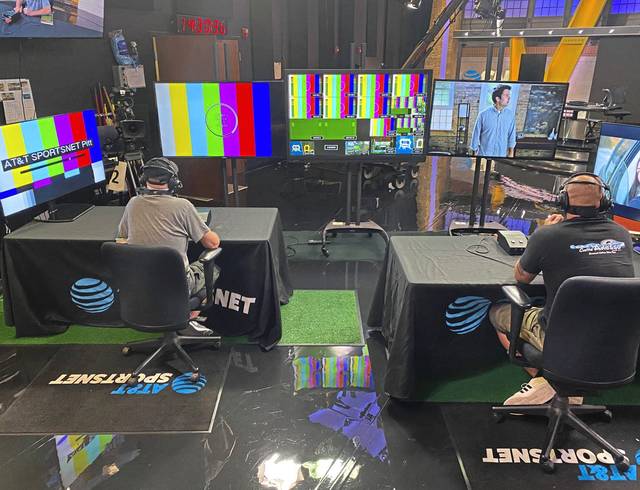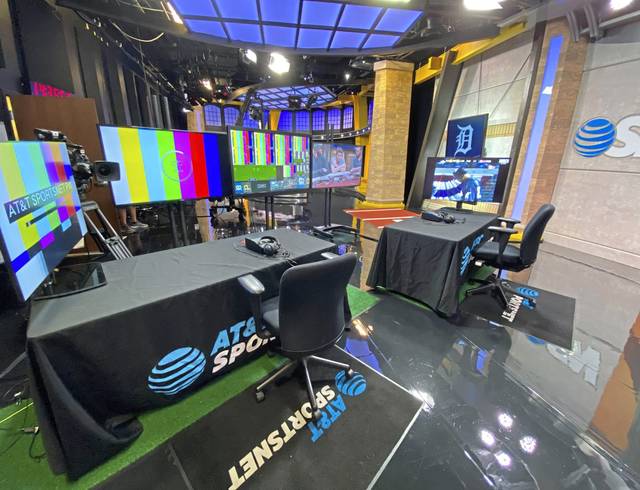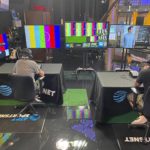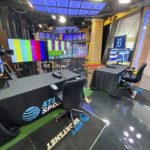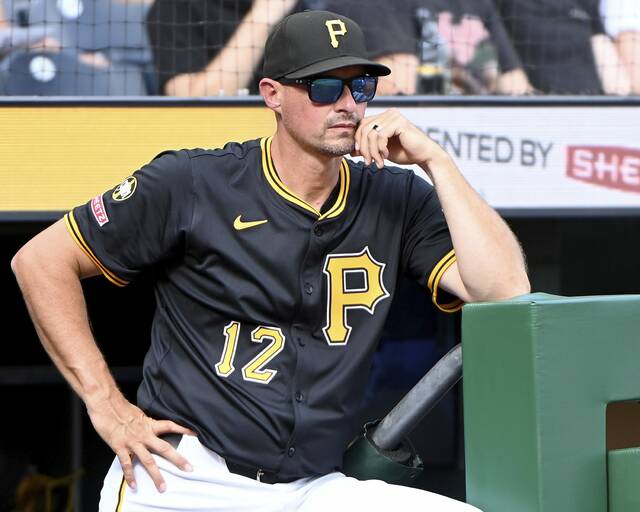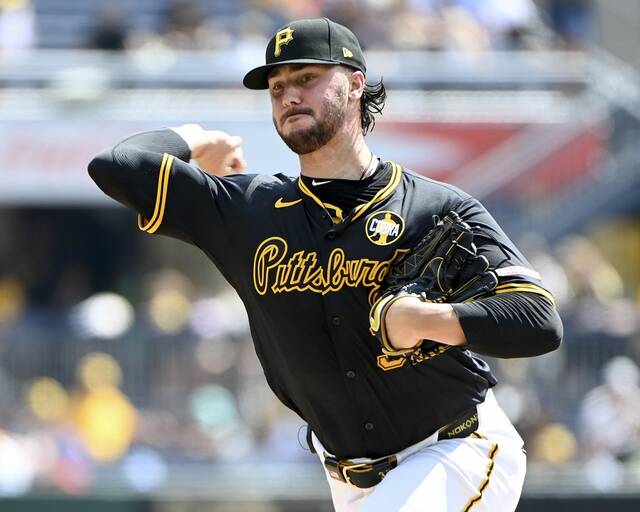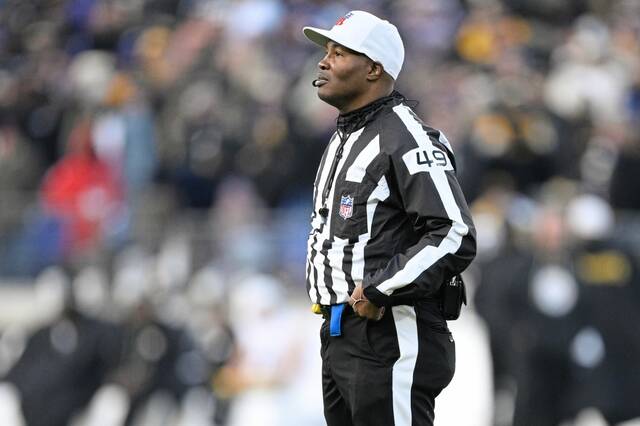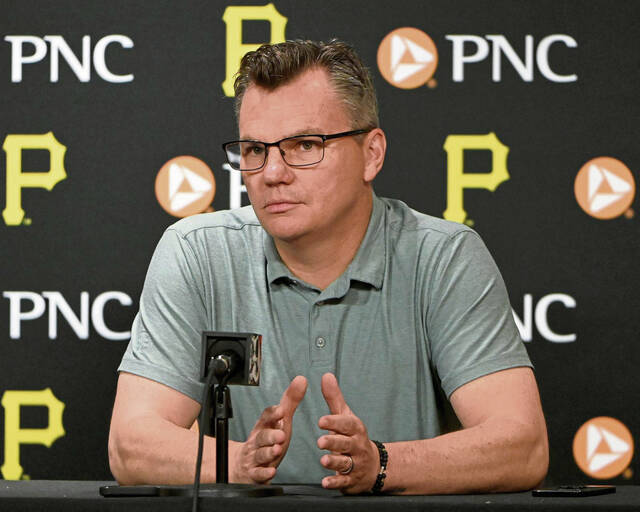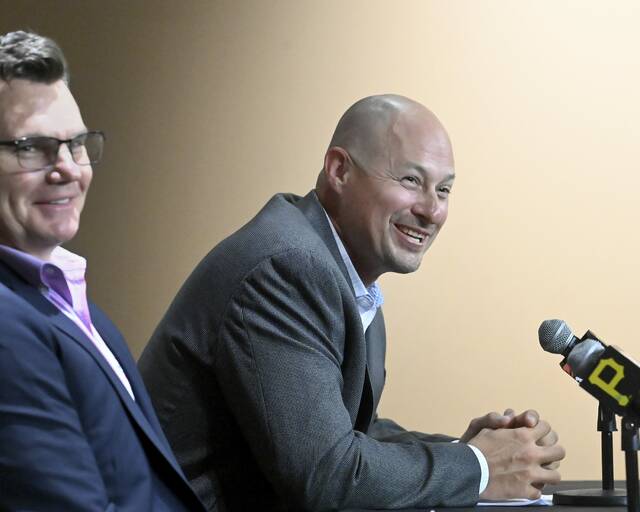Pirates play-by-play man Greg Brown has been calling baseball games since 1989.
But never in the way he’s about to try once Major League Baseball returns to play.
The covid-19 pandemic is restricting travel for baseball franchises to the point that local broadcasters will only be calling games — in person — at their own home stadiums. Television and radio games will originate from a remote studio when the local club is on the road.
“For home games, to my understanding, nothing has changed,” Brown said during a phone interview last week. “We’ll be in the radio and TV booths and doing the game per usual. On the road, we’ll go to the AT&T SportsNet studios.”
There, the Pirates television broadcasters will have a large set-up with multiple monitors to capture camera feeds from the road. In a normal situation, Brown told me that’s up to nine active cameras at a time.
So while the Pirates are playing in Cincinnati, Brown or Joe Block and their color commentators (Bob Walk or John Wehner) will be calling the game inside their North Shore studio.
They’ll have a program monitor — which is what the viewer sees at home. Yet they’ll also have to keep an eye on up to eight other shots at once in order to call action.
Essentially, Brown and company will be watching the game as director Pete Toma has for so many years.
“I’ve got to be a bit of a director myself,” Brown explained. “I’ve got to all of the sudden see what camera is dedicated to a ball hit down the line. And train myself to get to that screen. And then get to the camera at home plate watching the run cross home plate.”
Brown says he’ll likely rely on the standard center field shot from behind the pitcher, looking into home plate more than usual.
“I try to avoid getting away from what the viewer sees at home. I want to see what you are seeing,” Brown said.
As it has been explained to me, the Pirates radio team will be in a slightly smaller studio next door with fewer monitors for cameras. They’ll call the game from there and then it’ll be fed to 93.7 The Fan for broadcast.
By the way, when I say “studio,” that apparently means “converted conference room” for radio purposes.
“It’s unlike anything I’ve ever done,” Brown said.
Meanwhile, Penguins television play-by-play man Steve Mears has done this before. When he was working for the NHL Network, he called World Junior Championship games from a remote studio.
“It is doable,” Mears insists. “It’s amazing the amount of people who came up to me and said, ‘How was Finland? How was Sweden?’ These are broadcast people. Hockey people. Knowledgeable about the game. And they didn’t know.”
Mears tells me the studio set up for AT&T is more elaborate than what he had for the World Junior Games, and the bigger challenge for him is “not being immersed with the team and daily access.”
Mears says, to his knowledge, the plan is that he and color commentator Bob Errey will be calling all of the Penguins AT&T games played in their hub city while the local broadcasting crew remains in the Pittsburgh studios. The number of games, though, is still to be determined.
NBC can pick up games during the “play-in” round against the Montreal Canadiens, as well as the round of 16 if the Pens advance. But Mears believes, as of now, the broadcast is AT&T’s whenever NBC passes — until the conference semifinals. Those arrangements are similar to those in a normal NHL season.
As for the Penguins radio feed, I’ve been led to believe that the radio crew is welcome to the North Shore studio, too. But the plan might be to design a similar set up at the 105.9 The X studios in Greentree for the sake of consistency and streamlining.
After all, start time conflicts could arise. And while one TV broadcast will have to be bumped, the other will be on air. And the two radio broadcasts would have to go on simultaneously. That’s three broadcasts for two studios on the North Shore.
So I wouldn’t be surprised if the combination of Mike Lange, Josh Getzoff and Phil Bourque call the action from a scaled-down version on Fleet Street.
I also learned that a very — very — slight chance exists that the radio broadcast could originate from PPG Paints Arena late in the playoffs if covid-19 numbers decline. It’s a long shot, but potentially the Pens could socially distance about 4,000-5,000 fans into the building to watch on the big screen while the radio crew is in their normal booth and can watch the monitors and the Jumbotron.
Which brings up the topic of crowd noise. That’s something Mears said was mixed into the World Juniors broadcast and naturally piped into their booth to give a real feel to the call.
But at least those were actual humans making real noise at the venue overseas. That was real sound being transmitted live. Not artificial noise. Or even fans via an “app” as has been suggested.
That’s an idea Brown doesn’t like.
“Do I want crowd noise pumped into my headset to pump me up when it’s not actually happening on the air?” Brown asked. “And do we want to put fake crowd noise in a telecast so we think more fans are there? I’m leaning against that.”
I’m with Brown on that, 100%. I’m sorry, authenticity matters.
Both Mears and Brown dive deep into that conversation. We also talk about why the challenge for the baseball call may be more difficult than hockey, even though hockey moves faster.
Similarly, the nuances of the job will be far more difficult for the color analysts. Mears and Brown tell you why, as I spoke with both play-by-play artists during our Wednesday podcast.


